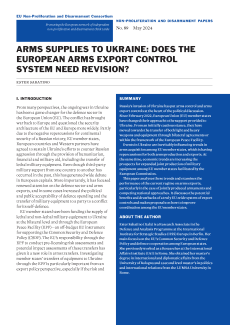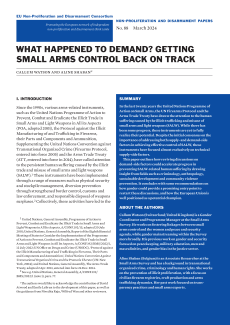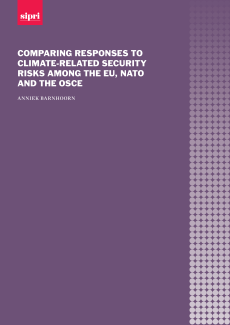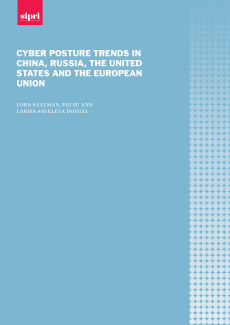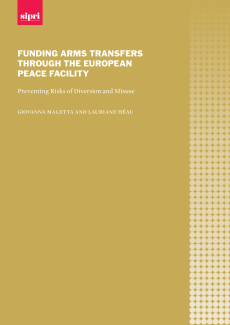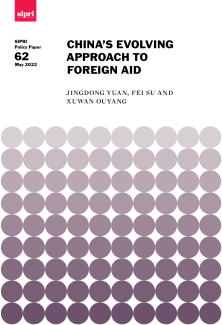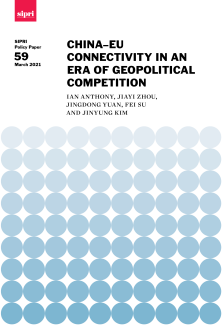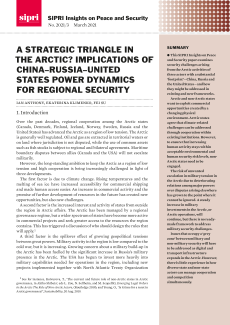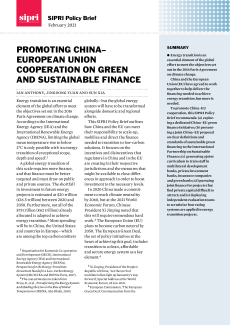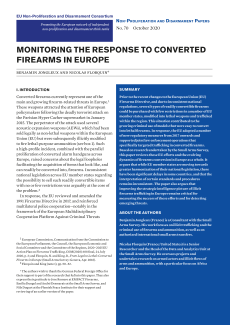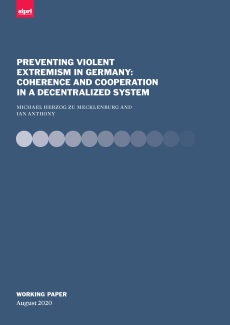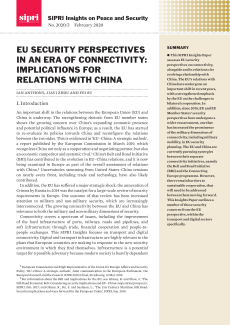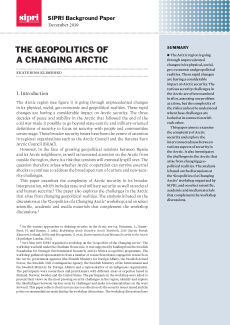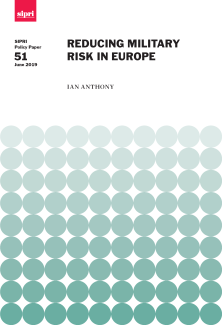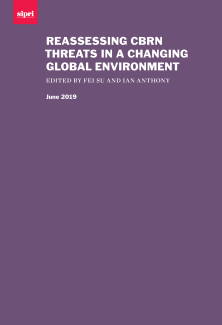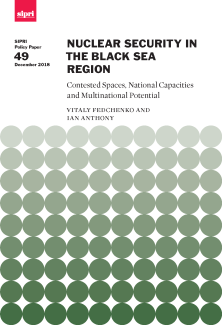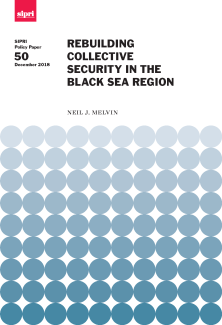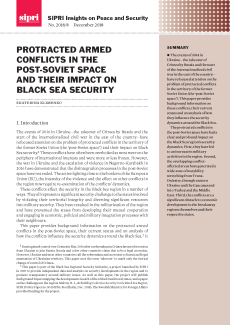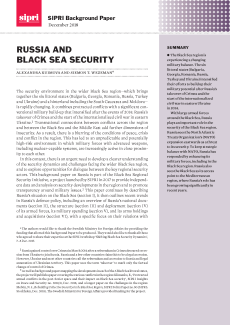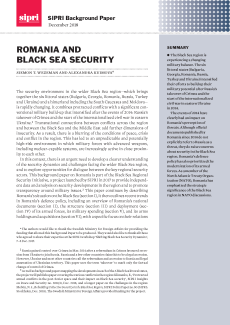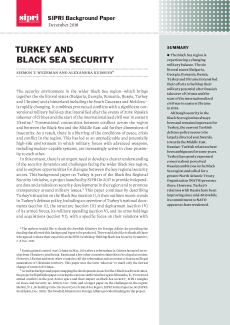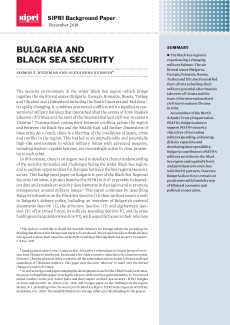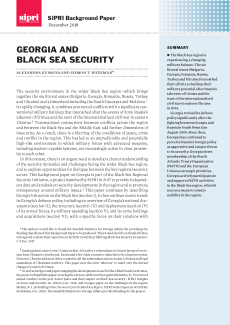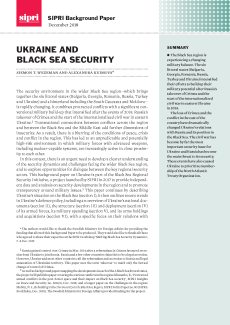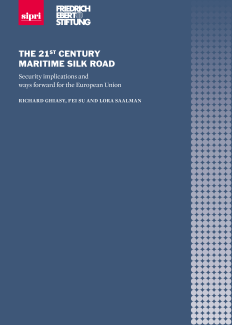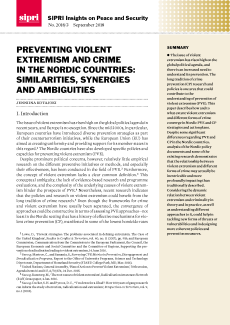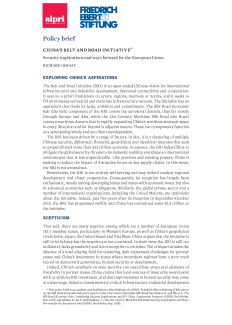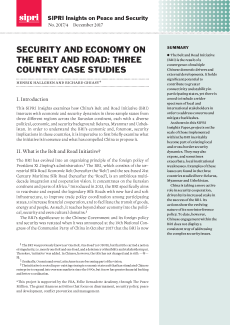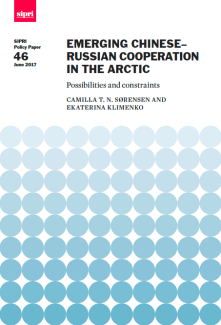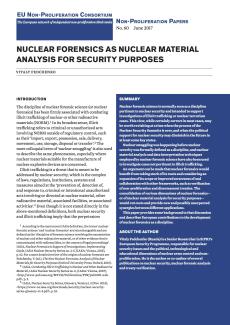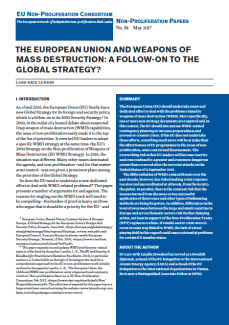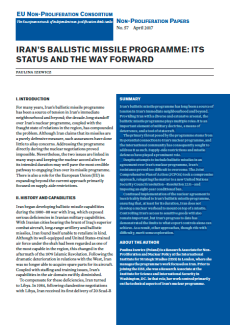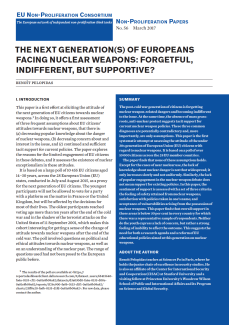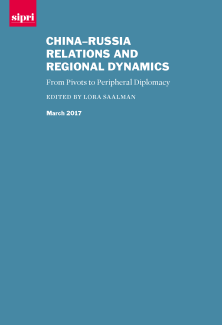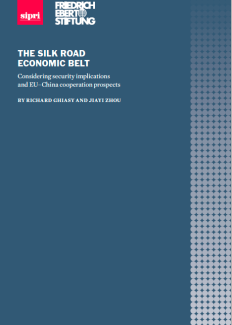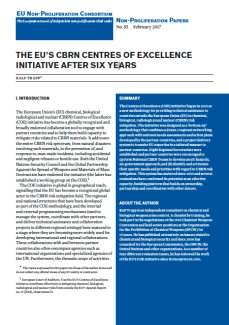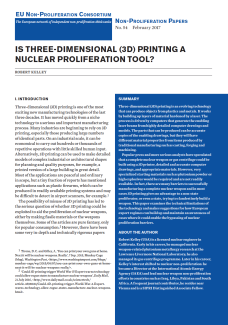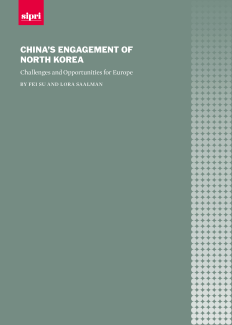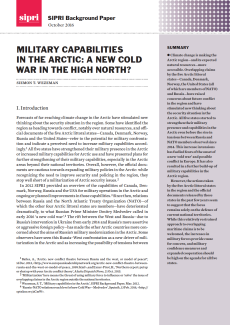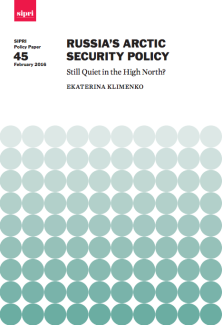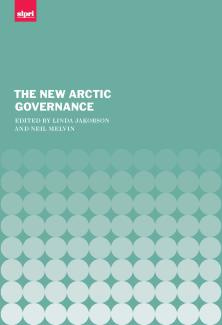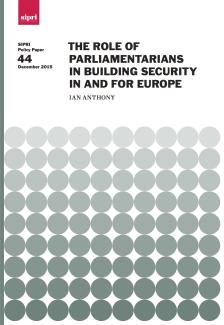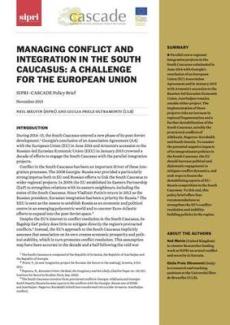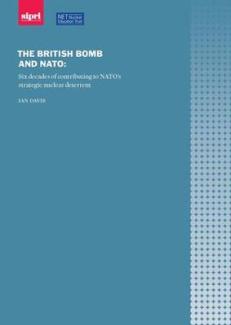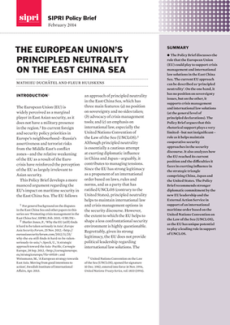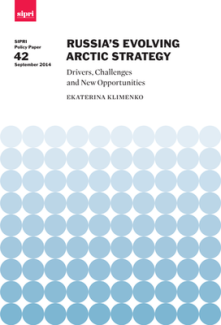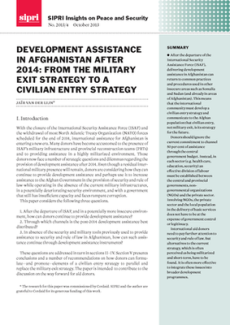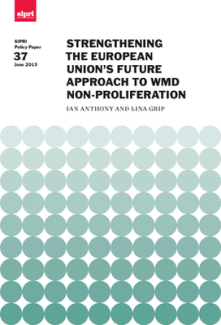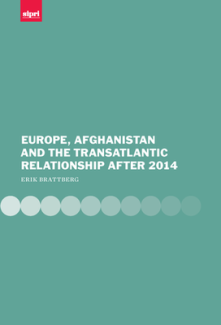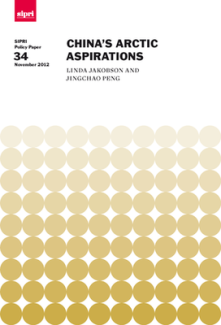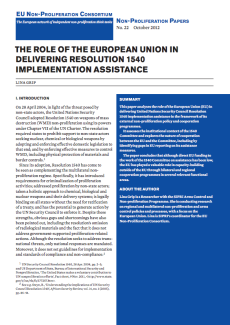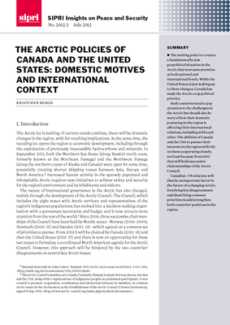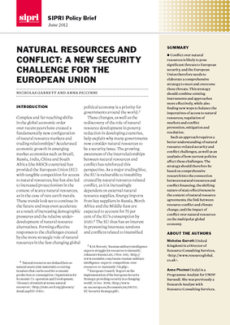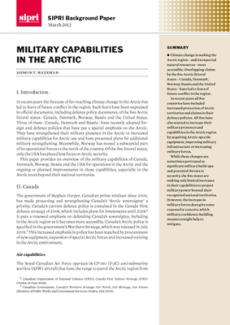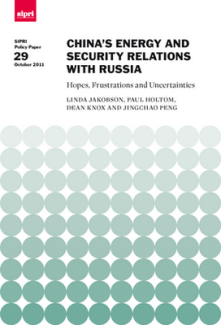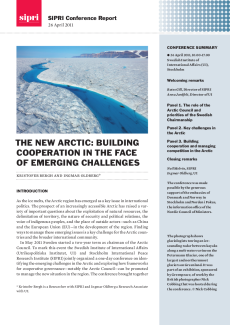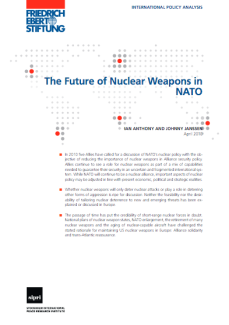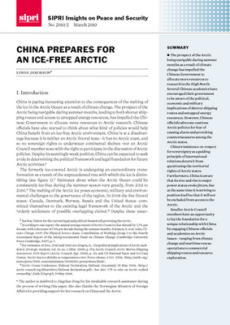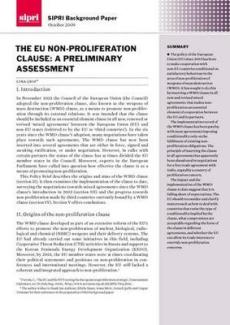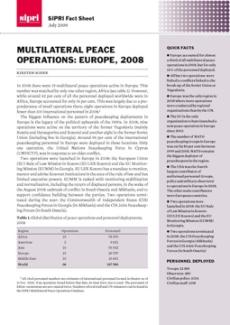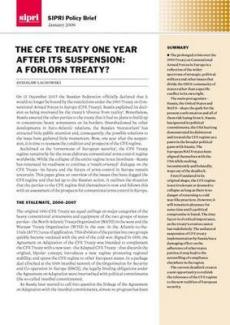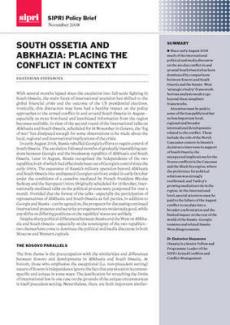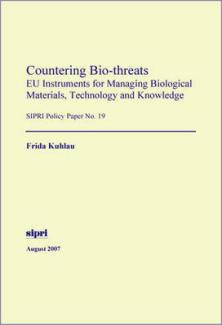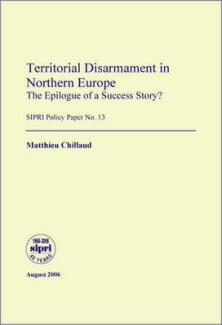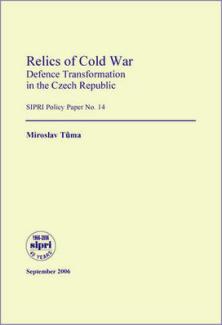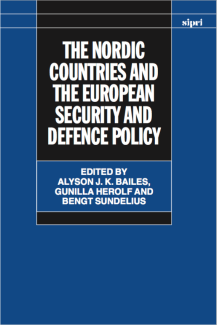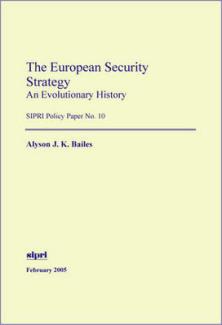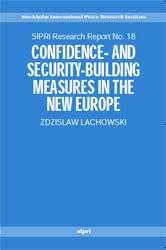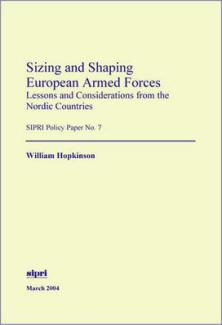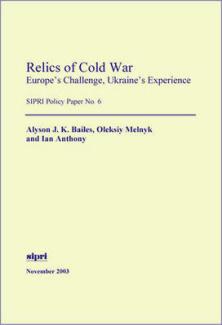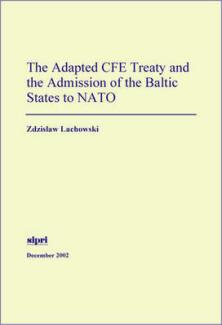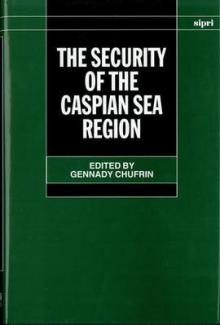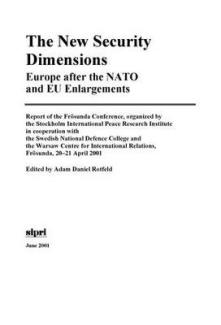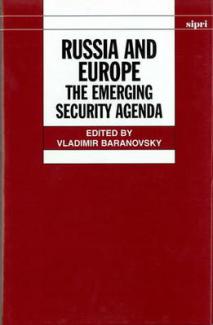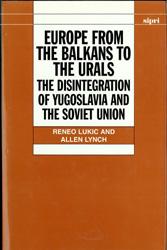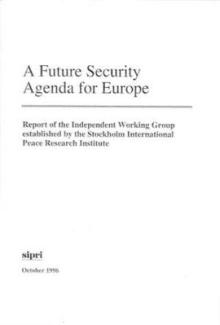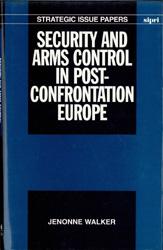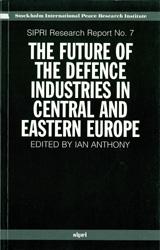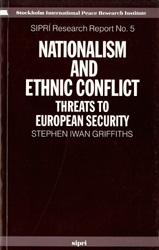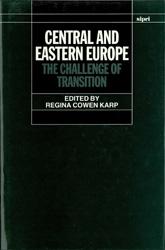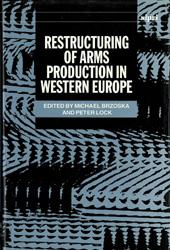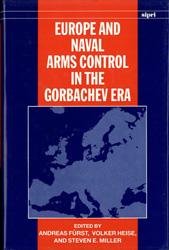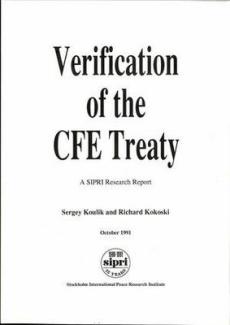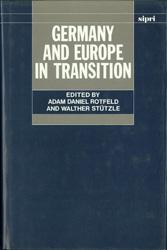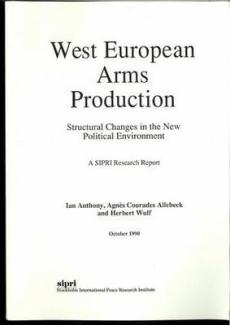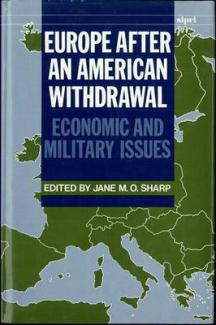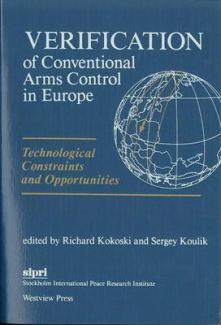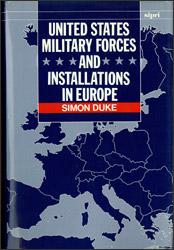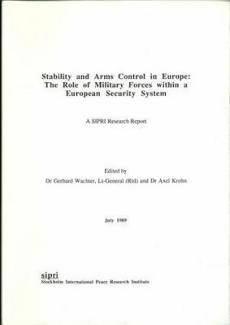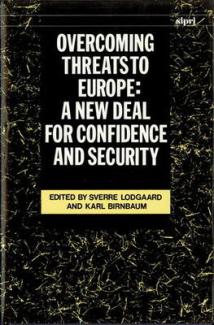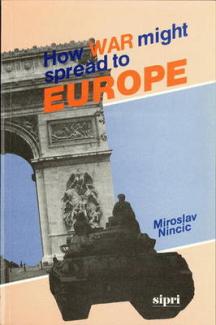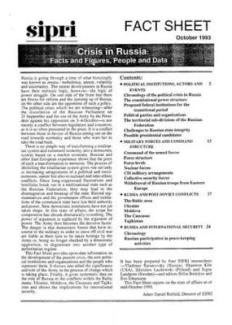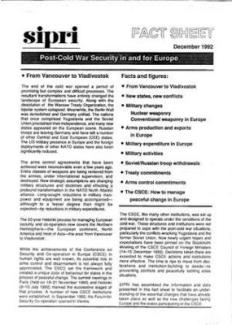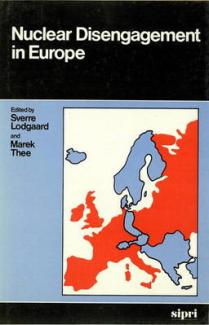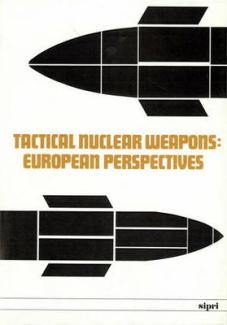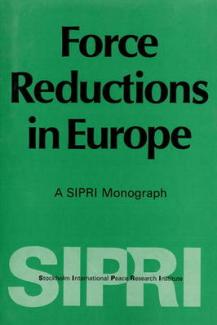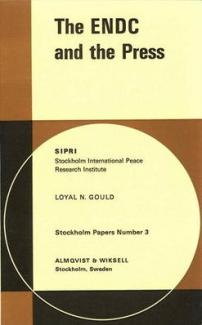Related publications: Europe
The role of the incoming European Union High Representative as a strategic coordinator
In 2015 a substantially new leadership in the European Union (EU) will have to respond to many acute external crises at the same time. Lars-Erik Lundin argues that the incoming EU High Representative should take on the role of a strategic coordinator in dealing with these crises.
One consistent element in the many reports on the European External Action Service (EEAS)—as shown by recommendations put forward by the EEAS itself, European Union (EU) member states (both individually and in the Council), the European Parliament, numerous think tanks and scholars and most recently the EU court of auditors—is the need for the EU’s High Representative to reform the EEAS and propose strategic goals for the way ahead.
However, first and foremost, the new High Representative of the Union for Foreign Affairs and Security Policy/Vice-President of the European Commission (HR/VP) needs to make eminently clear to his or her constituents that the role requires enhanced multitasking. This is due to the fact that the EU faces multiple crises.
Furthermore, the unfortunate truth is that the HR/VP cannot deploy to the front all the time. There are crucial challenges in the Belgrade–Pristina negotiations and Iran, where Lady Ashton is currently carrying out very important work. However, Ukraine, the Middle East and other hotspots certainly also require enhanced and sustained attention at the highest level.
Delegating to EU special representatives in their present format—as senior officials below the political level—or to trusted collaborators is not enough. Many potential or actual crises require shuttle diplomacy at the highest level. In the absence of strategic and continuous attention to all major issues on the EU level, individual EU states will take over. The preeminent role of Germany in the last years illustrates how the position of leading member states could come to be seen as representative of the EU as a whole.
A series of comprehensive approaches are needed in order to manage existing crises and prevent new crises from emerging. In order for this to work, the High Representative needs to seek help not just from the European Commission but also from member states and like-minded countries, from civil society and from international organizations.
Real-time attention to opportunities to do good requires perspective, and sometimes also the time to form judgments based on critical examination of evidence—what Daniel Kahneman calls ‘slow thinking’.
The truth is, therefore, that the EU leaders need to finally accept that the HR/VP has to be able to entrust major negotiating tasks to other high-level personalities working on his or her behalf, with full support from the entire EU institutional machinery.
In so doing, the criterion must be actual qualifications for the task, not formal position. There are many eminent personalities who can help, starting with Ashton herself: why not ask her to continue her excellent work on Iran? Why not ask Javier Solana to engage on key Common Security and Defence Policy (CSDP) operations, or Lord Patten to work on Bosnia? The list of potential contributors could be greatly expanded.
Whether the High Representative to be nominated is an experienced hand or not, he or she needs to ‘cut the Gordian knot’ in the very first presentations to the European Council and to the European Parliament. First, he or she should state that current crises require the same type of creative thinking as characterized the EU’s handling of the global financial and economic crisis.
Second, the EU High Representative needs to declare an intention to nominate special representatives at the highest level without appointment procedures, beyond an informal discussion in the European Council. Third, such special representatives need to be able to draw on resources and expertise in the external action service, and in the Commission. A close coalition with the President of the Commission will therefore be essential.
Perhaps the title of High Representative has led to the wrong expectations. The main task may not be representation but, instead, coordination.
The Northeast Asia Peace and Cooperation Initiative and the European experience of CSBMs
Dr Ian Anthony's opening remarks at the Asan–SIPRI Conference on the Northeast Asia Peace and Cooperation Initiative, Seoul, 9 July 2014.
I would like to thank our partners, the Asan Institute for Policy Studies and the Ministry of Foreign Affairs of the Republic of Korea, for making it possible to address such a timely topic, and to do it in a country that is emerging as a responsible middle power—contributing to stability and peaceful development not only in its own region, but globally.
There is certainly a great need at the moment to address questions of security governance, because the indicators published by SIPRI suggest some disturbing tendencies in conflict, in armament dynamics and in international security. Some of our recent findings suggest that achieving peaceful solutions to conflicts and promoting a stable peace may be becoming more elusive.
In Europe, we are approaching the 40th anniversary of the signing of the 1975 Helsinki Final Act. That document is often credited with laying the foundation for the evolution of a stable and peaceful Europe, based on agreed principles. We are approaching the 25th anniversary of the signing of the Charter of Paris, which took a further step in emphasizing that a united Europe would be built on shared values of human rights, democracy and the rule of law.
In light of recent events, the longevity of these achievements is now called into question as the current leadership of one of the most important countries in Europe—Russia—has made it very clear that there should not be a single model for the development of European states. According to the current Russian leadership, Europe should be more flexible, and should recognize alternative models of security governance.
In his speech at the Munich Security Conference in 2007, President Vladimir Putin asserted that the Organisation for Security and Cooperation in Europe (OSCE) no longer fulfilled its mandate, but rather promoted interference in the internal affairs of other countries, and aimed to impose a regime that determines how states should live and develop.
In some ways the Russian perspective could be seen as nothing more than adapting to take account of separate paths of development within Europe. In one part of Europe states are, to use the words of Robert Cooper, collapsing into a new kind of order—in which borders are less and less relevant, the difference between domestic and foreign affairs is progressively erased and mutual interference in what were traditionally seen as domestic affairs has become normal. Russia, on the other hand, has emphasized the need to reinforce the authority of states—while at the same time encouraging them to work more closely together.
After the 2007 speech there was an intense discussion about whether a single European security system could accommodate growing divergence in the interpretation of past agreements. The promotion of what some Russian analysts have labelled 'Western standards' has been identified as one cause of tension and instability in regions like the Middle East and Africa. Lieutenant-General Igor Surgun (the Director of Military Intelligence of the Russian armed forces) made this case very explicitly at the Conference on Military Security, organized by the Russian Ministry of Defence in Moscow on 23–24 May 2013. Other analysts question how an approach based on non-interference can succeed in a world where many of the most serious international security challenges arise from developments that are internal to states, rather than external.
The discussion took on new momentum with developments in Ukraine. The language used by senior leaders indicates that there is now widespread agreement across almost all of Europe that Crimea has been annexed to Russia through an act of aggression. The full impact of this on relations with Russia is yet to be fully determined.
The events have led to a new focus on a rather traditional politico–military issues in a Europe that was increasingly accustomed to defining security in a much more complex and multi-dimensional way.
The events are an indication that, even in a part of the world where principles and values have not only been agreed, but codified in various documents signed by the leaders of European countries, we are still far from achieving anything that could be described as a stable order.
The role of the United States is under detailed scrutiny. It is predictable that the summit meeting of NATO leaders that will take place soon in the United Kingdom will reinforce the solidarity behind collective defence, including a central role for the United States. Nevertheless, some actors are calling into question whether the United States has the skill, legitimacy and commitment to continue playing its traditional role in Europe at a time when it has many other domestic and international priorities.
More widely, outside Europe a significant body of analysts and observers have written that there may be an impending contest (though not necessarily a military confrontation) between the United States and others, based on alternative approaches to international governance. This is something often associated with China—which is unquestionably a rising power and inevitably a global one as its interests are rapidly spreading around the world.
In his inaugural address on taking office for a second term, President Obama signalled that the United States would continue to emphasize cooperation as the preferred means of pursuing US national interest. However, when Obama said that the United States ‘will show the courage to try and resolve our differences with other nations peacefully—not because we are naïve about the dangers we face, but because engagement can more durably lift suspicion and fear’, it was interpreted by many as a sign of weakness in foreign policy, not least domestically.
While recent US actions and statements are seen by some as an indication that the United States is no longer able to lead, it may equally be seen as adapting its leadership style to new conditions. Moreover, in many places it is seen as an open question whether there is currently a convincing alternative to US leadership on many issues.
There is currently a fluidity about international governance. More actors are engaged in decisions and exerting influence around the world, and there are also more centres of decision making. This includes countries from the South and the East, and a very heterogeneous set of non-state actors are now a permanent part of the landscape (both from a positive and a negative perspective).
In spite of what is written about the emergence of powers with the capacity to offer an alternative to US leadership, there does not seem to be a new bloc mentality. Current decisions seem to be characterized by flexible coalitions, in which countries cooperate on particular issues where they agree, but try to block one another on issues where the approach is contested.
The formation of flexible coalitions has perhaps been facilitated by the growing use of informal cooperation arrangements—such as the G20 framework where the main focus has been on the impact of the financial crisis. The leaders of a group of states that profile themselves as major advanced and emerging economies meet regularly, but also interact with representatives from international organizations and the non-governmental sector. The G20 marked their fifth anniversary with a meeting in Russia in September 2013, and their agreed statement indicated that this not a place where states find common agreement or take collective decisions, but a forum in which to coordinate national policies and manage any spillover effects from unilateral decisions.
Multilateral engagement is in a process of evolution. Negotiating issues of substance with the aid of specialized institutions, then codifying those agreements prior to national implementation appears to be less and less popular across a spectrum of issues. Traditional multilateralism seems to be in retreat in the fields of trade, finance, information technology and communications, ecology and environment.
In 2013 the inability of the United Nations Security Council to agree on many dimensions of a joint response to the conflict in Syria was also a sign that working through specialized institutions to forge agreement on issues of hard security has become progressively more difficult.
Having said that, the most prominent recent accomplishment of the multilateral approach was probably in the field of hard security. Syria agreed to dismantle and destroy its chemical weapon arsenal and join the Chemical Weapons Convention. The investigation of the use of chemical weapons in Syria was a joint effort by the United Nations, the Organization for the Prohibition of Chemical Weapons and the World Health Organization. None of this could have been achieved by any state unilaterally, or by any group of states acting in a loose coalition.
It is an important moment to discuss the potential of the multilateral approach to security building. Multilateralism was designed to increase efficiency because, as the scope of issues discussed under the banner of security became more complex, the myriad of contacts needed to seek agreement through bilateralism threatened to overwhelm even the largest governments.
Multilateralism is now sometimes criticized as less efficient than the coordination of national policies. However, experience suggests that the best an approach based on tolerating differences can do is contain disagreements, it can never solve disputes. Therefore, the apparent lack of appetite for seeking a new, common basis for agreement is disturbing.
At our meeting today we have a welcome opportunity to consider these and other issues, and to come to some conclusions about how best to promote security at a regional level in Asia. Looking at the list of participants we have the right group to take on the challenge, so let us begin to work.




